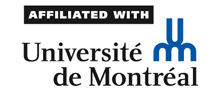By Marc Guinjoan, Universitat Pompeu Fabra
What is the story?
Voters’ expectations regarding electoral results are crucial in democratic elections. To make an informed choice, voters should be able to evaluate the chances of winning of each political party. In a recent article, we examine whether voters were able to anticipate the result (in their district) of the upcoming 2011 Ontario provincial election and to update their perception of the chances of each party compared to previous election results.
Method
To address this question, we use the MEDW 2011 Ontario pre-election survey data that was conducted within the two weeks preceding Election Day. In the survey, we asked individuals to assess the chances of each parliamentary party to win a seat in their district, on a scale from 0 (no chance at all) to 10 (certain to win).
We then compare individuals’ perception of the chances of each party to actual results of 2011 and 2007 Ontario provincial elections in their district. In Ontario, 107 provincial representatives are elected in single-member districts using plurality rule. In both the 2007 and 2011 elections, three parties sent representatives to the provincial parliament: the Liberals (incumbent), the NDP and the Conservatives (see the results of the 2007 and 2011 Ontario elections).
Our main independent variable is the nature of the party competition in the district of the individual. It is operationalized as follows: we assign the value 0 to voters in districts where a Liberal candidate won in 2007 and 2011, and the value 1 to voters in districts where the party’s candidate won in 2007 but lost in 2011. We do a similar coding for the two opposition parties (Conservative and NDP). This coding is summarized in Table 1.
With the help this coding, we assess whether individuals relied on 2007 election’s results to evaluate the chances of each party in their district (in that case, we talk about adaptive expectations), or whether they were able to update their perception of parties’ chances (through polls for instance) to match the context of the upcoming 2011 election (rational expectations).
Results
We perform an OLS regression with data clustered by electoral district. In our models, we control for political awareness, perception of the closeness of the election in the district, and party identification.
Our results suggest that individuals have rational expectations. In districts where the Liberals won in 2007 but lost in 2011, they perceived that the chances of winning of the candidate of this party were 1.20 points lower than those in districts where the Liberals won in both 2007 and 2011. Similarly, in districts where the Conservatives lost in 2007 but won in 2011, they perceived the chances of the candidate of this party were 1.34 points higher than those in districts where the Conservatives lost in both 2007 and 2011. This difference of perception is similar for individuals in districts where the NDP lost in 2007 but won in 2011 (compared to those in districts where the NDP lost in both 2007 and 2011).
Conclusion
Our analysis suggests that voters are able to form rational expectations about an upcoming election. In particular, they are able to update previous election results with information about the reality of the local party competition in the upcoming election. Our study makes an important contribution to the literature on voter coordination in democratic elections.
For further details and analyses, see Guinjoan, Marc, Pablo Simón, Sandra Bermúdez and Ignacio Lago. Forthcoming. Expectations in Mass Elections: Back to the Future? Social Science Quarterly.
